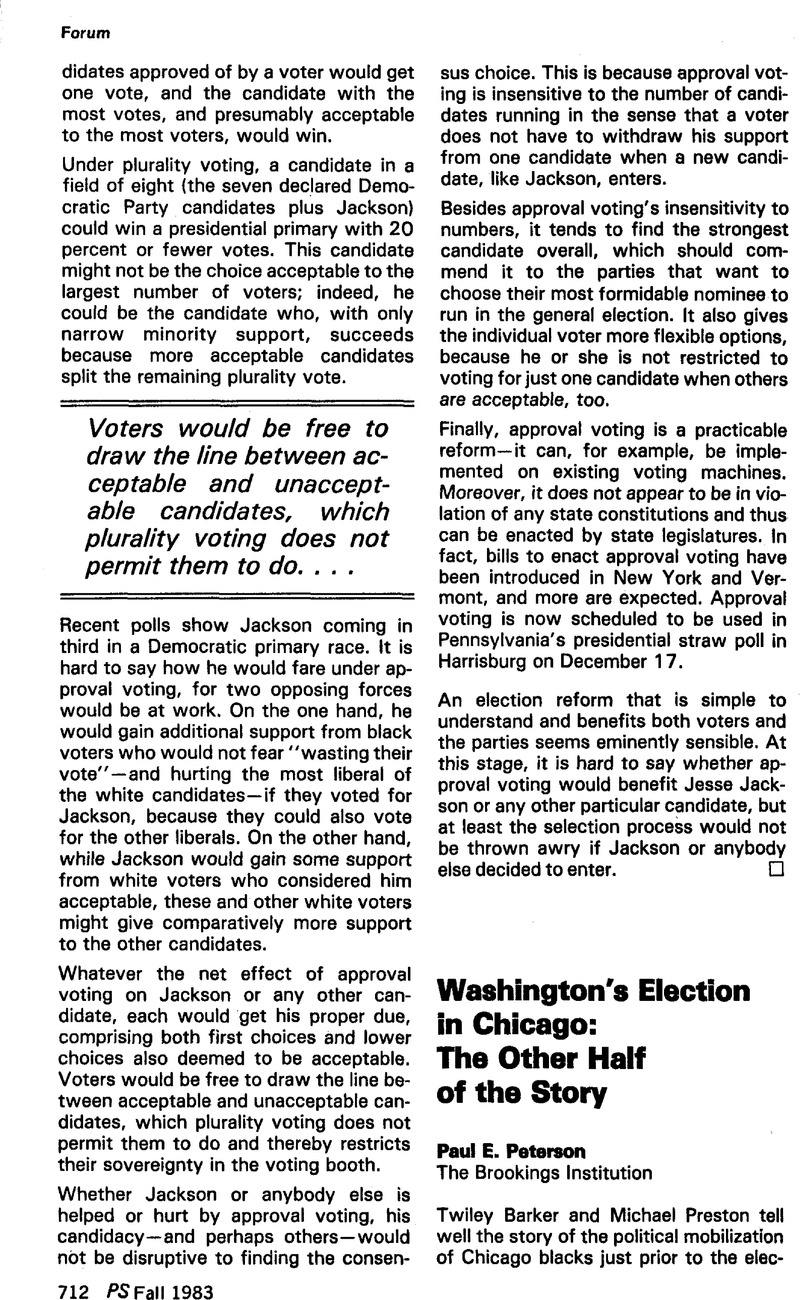Published online by Cambridge University Press: 25 November 2022

1 In his analysis of the rapid mobilization of British Labor support after World War I, Samuel Beer similarly interprets the insult to Henderson, Arthur by George, Lloyd. British Politics in the Collectivist Age (New York: Knopf, 1966), pp. 138–139.Google Scholar
2 Barker, Twiley W., “Political Mobilization of Black Chicago: Drafting a Candidate,” PS XVI (Summer 1983), pp. 482–485 CrossRefGoogle Scholar; Preston, Michael B., “The Election of Harold Washington: Black Voting Patterns in the 1983 Chicago Mayoral Race,” PS XVI (Summer 1983), pp. 486–488.CrossRefGoogle Scholar
3 Spear, Allan, Black Chicago (Chicago: Phoenix, 1969), p. 191.CrossRefGoogle Scholar
4 Gosnell, Harold F., Negro Politicians: The Rise of Negro Politics in Chicago (Chicago: University of Chicago Press, 1967), p. 11.Google Scholar
5 Wilson, James Q., Negro Politics (New York: Free Press, 1961).Google Scholar
6 Katznelson, Ira, Black Men, White Cities (London: Oxford University Press, 1973), p. 87.Google Scholar
7 Peterson, Paul E., School Politics Chicago Style (Chicago: University of Chicago Press, 1976), p. 195.Google Scholar
8 Piven, Frances and Cloward, Richard, Regulating the Poor (New York: Pantheon, 1971), p. 218.Google Scholar
9 Joint Center for Political Studies, National Roster of Black Elected Officials (Washington, D.C., 1982).Google Scholar
10 My thanks to Thomas Guterback, University of Virginia, who graciously supplied this information based on compilations from ibid.